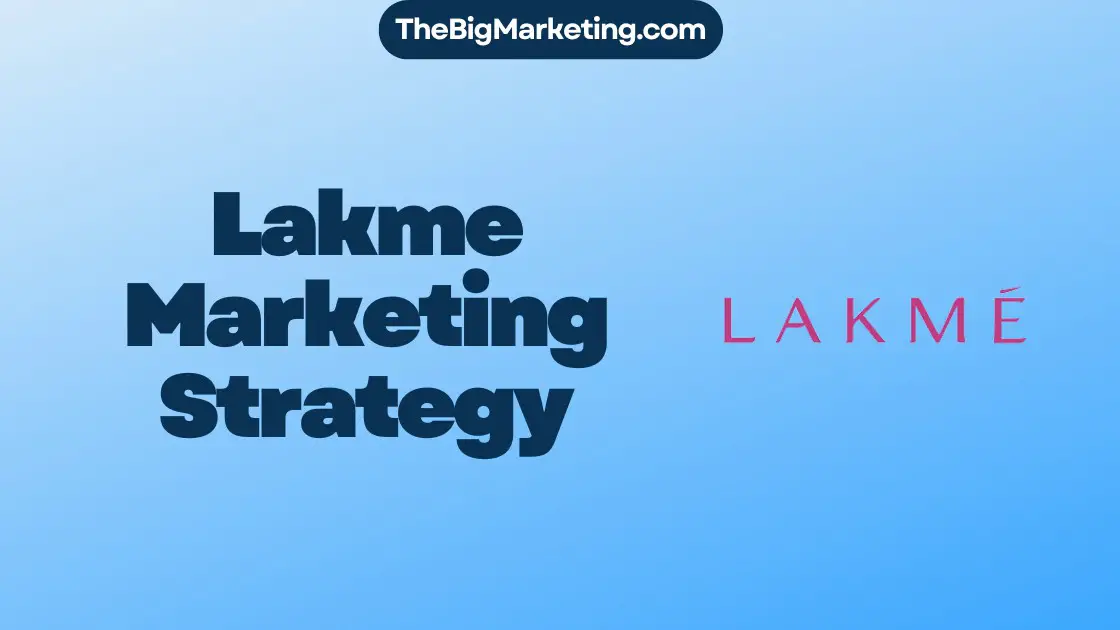Content marketing has become an essential aspect of a successful digital marketing strategy. By creating and distributing valuable and relevant content, businesses can achieve various advantages that contribute to their overall growth. In this comprehensive guide, we will explore the numerous benefits of content marketing and how it can elevate your brand’s online presence.
Key Takeaways:
- Content marketing drives increased conversions and boosts customer engagement.
- By strengthening customer relationships, businesses can cultivate loyalty and gain brand advocates.
- Content marketing plays a pivotal role in growing brand awareness and expanding reach.
- By establishing authority and expertise, businesses can position themselves as industry leaders.
- Content marketing contributes to driving website traffic, enhancing SEO efforts, and improving search engine rankings.
Increases Conversions
Effective content marketing plays a key role in increasing conversions for businesses. By providing informative and engaging content, businesses can address potential customers’ questions and concerns, driving them towards making a purchasing decision. Informative content acts as a valuable tool that guides buyers through the decision-making process, providing clarity and reassurance along the way.
When customers encounter informative content that answers their inquiries and provides valuable insights, they are more likely to trust and engage with a brand. This trust and engagement ultimately lead to improved conversion rates and increased sales. By driving purchasing decisions through well-crafted content, businesses can influence customer behavior and prompt action.
Informative content also serves as an opportunity for businesses to reassure buyers. By addressing common pain points, addressing objections, and providing clarity, businesses can alleviate concerns and build confidence in their products or services. This reassurance instills trust in potential customers, making them more likely to convert.
Furthermore, by providing educational content that helps customers understand their needs and how a product or service meets those needs, businesses can position themselves as trusted advisors. This approach not only improves conversion rates but also cultivates long-term customer relationships based on trust and expertise.
Overall, through informative content, businesses can increase conversions by improving conversion rates, driving purchasing decisions, providing reassurance for buyers, and offering clarity that guides customers towards making confident decisions.
Strengthens Customer Relationships
Content marketing is a powerful tool for building and strengthening customer relationships. By creating valuable, relatable, and authentic content, businesses can establish trust and connect with their target audience on an emotional level.
One of the key aspects of content marketing is brand storytelling. By sharing compelling narratives and experiences, businesses can forge a deep emotional connection with their customers. This storytelling approach allows brands to showcase their values, mission, and unique identity, creating a sense of authenticity that resonates with their audience.
Consistency is another critical factor in building strong customer relationships through content marketing. By consistently delivering valuable and insightful content, brands can demonstrate their thought leadership and establish themselves as trusted authorities in their industry.
Furthermore, content marketing provides an opportunity for businesses to inspire action from their customers. By including direct calls to action in their content, brands can encourage engagement, promote brand loyalty, and drive customers to take desired actions.
Grows Brand Awareness
One of the key benefits of content marketing is its ability to grow brand awareness. By creating valuable and shareable content, businesses can increase their visibility in search engine result pages (SERPs) and attract organic traffic. This increased visibility not only helps businesses reach a wider audience but also establishes their presence as industry leaders.
Content marketing plays a crucial role in search engine optimization (SEO) by optimizing keywords and providing relevant and authoritative content. This allows businesses to rank higher in SERPs, making it easier for potential customers to find them. Higher visibility in SERPs ultimately leads to increased brand awareness and recognition.
In addition to improving visibility in SERPs, content marketing also leverages social media platforms to engage with target audiences. Engaging and informative content encourages social media engagement, driving discussions, shares, and likes. These interactions not only increase brand visibility but also create opportunities for word-of-mouth marketing, as satisfied customers share their positive experiences.
Reaching Ad-Avoidant Audiences
Another advantage of content marketing is its effectiveness in reaching ad-avoidant audiences. Traditional advertising methods often face ad-blocking tools, ad fatigue, or plain neglect from consumers. However, content marketing provides an alternative approach by delivering valuable and relevant content that users actively seek out.
Ad-avoidant audiences are more likely to engage with branded content that provides value, educates, or entertains. By leveraging content marketing strategies, businesses can capture the attention of these audiences and build relationships with them. This not only enhances brand awareness but also increases the chances of converting these audiences into loyal customers.
Overall, content marketing is a powerful tool for growing brand awareness, as it leverages SEO strategies, social media engagement, and appeals to ad-avoidant audiences. By creating valuable and shareable content, businesses can establish their presence, engage with their target audience, and expand their reach in the digital landscape.
Establishes Authority
Content marketing is a powerful tool that allows businesses to establish authority and position themselves as industry experts. By consistently creating useful and relevant content, businesses can demonstrate their industry expertise and provide unique insights to their target audience.
Thought leadership is a key component of authority-building through content marketing. By sharing valuable knowledge and expertise, businesses can gain the trust of their audience and establish themselves as go-to resources within their niche.
When businesses consistently deliver high-quality content that addresses their audience’s pain points and offers expert solutions, they build credibility and foster trust-building with their readers. This trust forms the foundation of strong customer relationships and positions the brand as a trusted authority in the industry.
Establishing authority through content marketing involves more than just sharing industry knowledge. It also requires consistent messaging that reflects the brand’s expertise and values. By maintaining a consistent brand voice and delivering content that aligns with the brand’s overall strategy, businesses enhance their authority and establish a distinct identity.
To solidify their position as industry experts, businesses should focus on providing unique insights and offering a fresh perspective on industry trends and challenges. This enables them to differentiate themselves from competitors and establish thought leadership within their industry.
Overall, content marketing is an effective strategy for establishing authority, industry expertise, and thought leadership. By delivering valuable and relevant content consistently, businesses can gain the trust of their audience, foster strong relationships, and position themselves as leaders in their field.
Example Table: Establishing Authority
| Benefits of Establishing Authority Through Content Marketing | Examples |
|---|---|
| Increased brand credibility | Thought-provoking blog posts that offer unique insights into industry trends |
| Trust-building with target audience | Whitepapers and case studies that demonstrate expertise and provide valuable solutions |
| Recognition as an industry expert | Speaking engagements and guest posts on reputable industry websites |
| Opportunities for collaboration and partnerships | Being invited to participate in panel discussions and industry events |
By leveraging content marketing to establish authority, businesses can position themselves as leaders within their industry, attract a loyal audience, and open up new opportunities for growth and success.
Increases Website Traffic
Content marketing is an effective strategy for increasing website traffic.
By creating valuable and keyword-optimized content, businesses can significantly improve their search engine rankings and attract a larger number of organic visitors to their website.
Regular content updates play a crucial role in driving traffic growth, as search engines favor websites that provide fresh and relevant content.
Additionally, long-form content allows businesses to target valuable keywords and provide comprehensive information to their audience, which can enhance search engine visibility and attract more visitors through organic search results.
Internal linking is another essential element of content marketing that helps drive website traffic.
By strategically linking related pages and content within their website, businesses can improve user experience, guide visitors to relevant information, and increase page views.
The combination of valuable content, regular updates, long-form content, and internal linking creates a powerful synergy that leads to increased website traffic and improved overall website performance.
Boosts SEO
Content marketing plays a significant role in boosting SEO efforts and improving search engine rankings. By creating high-quality, keyword-optimized content, businesses can enhance their online visibility and attract organic traffic. When it comes to SEO, quality content is of utmost importance. Search engines value relevant and authoritative content that provides a positive user experience.
Relevance and authority are key factors search engines consider when determining search rankings. By consistently delivering high-quality content that aligns with the needs and interests of the target audience, businesses can establish themselves as an authoritative source in their industry. This not only improves search engine rankings but also builds trust and credibility among website visitors.
Keyword Optimization
Targeting valuable keywords in the content is essential for improving SEO. By conducting thorough keyword research and integrating relevant keywords naturally throughout the content, businesses can increase the visibility of their website in search engine results. Keyword optimization involves strategically placing keywords in the header tags, meta descriptions, title tags, and body copy.
However, it is important to avoid keyword stuffing, as search engines penalize websites for this practice. The key is to find the right balance between including keywords and maintaining a natural and engaging writing style.
Backlinks and Authority
Creating high-quality content that provides value to users not only attracts organic traffic but also encourages other websites to link back to your content. These inbound links, also known as backlinks, are crucial for SEO as they signal to search engines that your website is relevant and reliable. The more backlinks your content receives from reputable sources, the higher it will rank in search engine results.
However, it’s important to note that not all backlinks are created equal. It is crucial to focus on attracting backlinks from authoritative websites with a high domain authority. These backlinks are more valuable for SEO purposes and can significantly boost your website’s search engine rankings.
User Experience and Relevance
Search engines prioritize websites that provide a positive and seamless user experience. This includes factors such as fast page load times, mobile responsiveness, and easy navigation. By creating high-quality content that caters to the needs and interests of the target audience, businesses can enhance the overall user experience and improve their SEO rankings.
Summary
Content marketing offers several benefits to businesses, and one of the most significant advantages is its ability to boost SEO. By creating high-quality, keyword-optimized content that demonstrates relevance and authority, businesses can improve their search engine rankings and attract organic traffic. Providing a positive user experience and earning valuable backlinks from authoritative sources further enhance the SEO benefits of content marketing.
| Benefits of Content Marketing for SEO | Description |
|---|---|
| Improved Search Engine Rankings | Creating high-quality, relevant content helps improve search engine rankings. |
| Increased Organic Traffic | Keyword optimization and high-quality content attract organic traffic to the website. |
| Enhanced Visibility Online | Ranking higher in search results leads to increased visibility among potential customers. |
| Authority and Trust Building | Providing authoritative and valuable content builds trust and establishes the brand as an industry expert. |
| Positive User Experience | Optimizing content for user experience improves website performance and engagement. |
| Valuable Backlinks | High-quality content attracts backlinks from authoritative sources, boosting SEO efforts. |
Enhances Brand Identity
Content marketing plays a vital role in brand identity development. By consistently delivering valuable and engaging content, businesses can reinforce their brand messaging, establish a unique brand personality, and create a recognizable brand voice. Incorporating visual branding elements and maintaining a consistent approach to content creation contributes to building a strong and cohesive brand identity.
When businesses consistently produce content that aligns with their brand values and resonates with their target audience, they reinforce their brand’s core identity. This creates a strong impression on customers and builds trust and loyalty over time.
Furthermore, content marketing allows businesses to showcase their unique brand personality. Whether it’s through thought-provoking articles, entertaining videos, or visually stunning infographics, brands can express their distinct voice and style, setting themselves apart from competitors.
Visual branding elements are crucial in defining a brand’s identity. By incorporating consistent colors, fonts, logos, and design elements into their content, businesses can create a visually cohesive brand presence. This visual consistency helps customers recognize and differentiate the brand across various platforms and touchpoints.
A consistent approach to content creation is key to maintaining a strong brand identity. By ensuring that all content produced reflects the brand’s values, messaging, and tone, businesses can establish a coherent and unified brand voice. Consistency builds familiarity and reinforces the brand’s identity in the minds of customers.
| Benefits of Enhancing Brand Identity through Content Marketing |
|---|
| 1. Increased brand recognition |
| 2. Enhanced brand loyalty |
| 3. Improved customer perception |
| 4. Differentiation from competitors |
| 5. Strengthened brand reputation |
By leveraging content marketing to enhance brand identity, businesses can enjoy a range of benefits, including increased brand recognition, enhanced brand loyalty, improved customer perception, differentiation from competitors, and a strengthened brand reputation.
Improves Customer Retention
When it comes to customer retention, content marketing is an invaluable tool. By creating and sharing engaging and informative content, businesses have the power to keep customers interested and coming back for more. By offering valuable content that educates and provides ongoing value, businesses can cultivate customer loyalty and achieve higher retention rates.
Engaging content plays a vital role in building a strong bond between businesses and their customers. Whether it’s through blog posts, videos, or social media updates, businesses have the opportunity to connect with their audience on a deeper level. By delivering content that resonates with their interests, needs, and pain points, businesses can establish a sense of trust and foster long-term relationships.
A well-executed content marketing strategy not only keeps customers engaged but also cultivates their loyalty. By consistently delivering valuable content, businesses create an environment where customers feel valued and understood. This sense of loyalty leads to repeat visits and an increased likelihood of them choosing your brand over competitors.
Additionally, content marketing allows businesses to educate their customers. By providing informative and educational content, businesses can help their customers make informed decisions, solve problems, and expand their knowledge. This educational approach not only helps customers but also positions businesses as trusted authorities in their industry.
Ultimately, by focusing on content marketing, businesses can improve customer retention by continually offering engaging content, fostering loyalty, and providing valuable education. This approach not only benefits the customers but also helps businesses build a loyal customer base that drives long-term success.
Benefits of Content Marketing for Customer Retention
Content marketing offers several key benefits for improving customer retention:
| Benefit | Description |
|---|---|
| Engaging Content | Create content that captures and holds the attention of your audience, keeping them coming back for more. |
| Repeat Visitors | By offering valuable content, you encourage customers to visit your website or platform repeatedly. |
| Customer Loyalty | Build a loyal customer base that actively chooses your brand and remains loyal over time. |
| Customer Education | Provide valuable information and resources that educate your customers and help them make informed decisions. |
Drives Lead Generation
Lead generation is a critical component of any successful marketing strategy, and content marketing plays a vital role in driving this process. By creating valuable content offers, businesses can attract potential customers, capture their information, and nurture them through the sales funnel. Let’s explore some key techniques and tools used in content marketing to generate and convert leads effectively.
Content Offers
One of the key methods to drive lead generation is through content offers. These valuable resources, such as eBooks, guides, or webinars, provide valuable insights and solutions to the target audience’s pain points. By offering valuable content, businesses can attract their ideal customers and incentivize them to provide their contact information in exchange for access to these resources.
Gated Content
Gated content refers to valuable information made available to users only after they provide their contact details. This strategy enables businesses to capture leads effectively. By strategically gating content, businesses can ensure that they are exchanging their valuable resources for valuable customer information.
Landing Pages
Landing pages play a crucial role in lead generation. A well-designed landing page is specifically created to capture leads by aligning with the content offer. The landing page should have a clear call-to-action (CTA) that encourages visitors to provide their information in exchange for the content offer. Businesses should focus on creating persuasive and visually appealing landing pages that optimize lead capture rates.
Implementing these lead generation strategies within content marketing allows businesses to nurture potential customers, provide them with valuable resources, and guide them through the sales funnel, resulting in higher conversion rates and increased revenue.
| Lead Generation Tactics | Benefits |
|---|---|
| Creation of valuable content offers | Attracting the target audience and capturing their information |
| Strategic use of gated content | Collecting valuable customer information in exchange for access to resources |
| Optimized landing pages | Increasing lead capture rates and guiding visitors through the sales funnel |
Enhances Customer Experience
Content marketing plays a crucial role in enhancing the overall customer experience. By creating personalized and user-centric content, businesses can cater to their audience’s specific needs and preferences. This approach allows businesses to connect with their customers on a deeper level, providing them with content that resonates and adds value to their lives.
Personalized content acknowledges the individuality of each customer, making them feel seen and understood. When customers receive content that is tailored to their interests and preferences, they are more likely to engage with it and find it relevant to their needs. This, in turn, leads to increased satisfaction and a positive perception of the brand.
A user-centric approach to content creation focuses on putting the customer at the center of the strategy. It involves conducting market research, understanding customer behaviors and preferences, and using that insight to develop content that meets their needs. By doing so, businesses can create a seamless and enjoyable customer experience.
Continuous Improvement
One of the key aspects of enhancing the customer experience through content marketing is the ability to incorporate customer feedback. By actively seeking and listening to customer feedback, businesses can gain valuable insights into what is working well and what can be improved. This feedback loop allows businesses to make data-driven decisions, iterate on their content strategies, and deliver an even better experience to their customers.
Continuous improvement is essential in content marketing because customer preferences and behaviors can change over time. By staying attuned to these changes and adapting content accordingly, businesses can ensure that their content remains relevant and valuable.
Moreover, monitoring and analyzing user interactions with content can provide valuable data on how customers are engaging with the material. This information helps businesses understand which types of content are resonating the most and can inform future content creation efforts.
In conclusion, content marketing plays a critical role in enhancing the customer experience. By creating personalized and user-centric content, businesses can create meaningful connections with their audience, leading to increased customer satisfaction and loyalty. Incorporating customer feedback and continuously improving content based on user interactions ensures an exceptional customer experience that sets businesses apart from their competitors.
Conclusion
Content marketing is a valuable business strategy that offers a multitude of benefits to businesses. Through the creation and distribution of valuable and engaging content, businesses can achieve increased conversions, strengthened customer relationships, improved brand awareness, and enhanced SEO efforts. By investing time and resources into content marketing, businesses can drive growth, engage target audiences, and pave the way for long-term success.
The importance of content marketing cannot be overstated. It allows businesses to connect with their audience on a deeper level, positioning themselves as industry experts, and establishing trust and credibility. Additionally, content marketing serves as a powerful tool for enhancing brand identity, improving customer retention, driving lead generation, and providing an exceptional customer experience.
As businesses navigate the increasingly competitive digital landscape, content marketing emerges as a critical component of their overall marketing strategy. By leveraging the benefits of content marketing, businesses can effectively engage and connect with their target audience, ultimately driving business growth and achieving their marketing goals.




